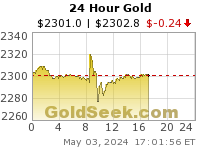Today I am going to make some assumptions.
I am going to assume that you read this blog somewhat regularly, and that you are aware that America is headed, in the longterm, for a massive economic meltdown thanks to massive entitlement program liabilities [a] and a horrendous national debt [b].
But there is yet another reason to be cautious.
According to this article from Seeking Alpha.Com:
“Another Perfect Storm Brewing: Government Underwritten Contingent Liabilities
Posted on Jun 8th, 2007 with stocks: FNM, FRE, SPY
Michael Panzner submits: Of all the brewing firestorms in the U.S. economy, perhaps the least known is the one stemming from the massive build-up of contingent liabilities underwritten by federal, state, and local governments -- that is, taxpayers. These include a vast array of explicit backstops, such as federal and state loan guarantees, where the public is on the hook if the insured borrowers default. They also include various implied guarantees, like those associated with government-sponsored enterprises such as Fannie Mae and Freddie Mac, which are not legally binding but which authorities will nonetheless find it difficult to renege on if and when disaster strikes.
One category of contingent obligation that has grown in size to the point where it is beginning to represent a potentially serious threat to future financial stability is comprised of government-sponsored insurance pools, or "insurers of last resort." In many cases, ILRs have been established to provide coverage for those who can't obtain insurance from the private sector, but who are nonetheless required to have it (as is the case with those who own and operate motor vehicles, for example). While overseen by the public sector, many are funded by premiums levied on most or all of the firms operating in a particular market, though large deficits often stir up controversy and legal wrangling.
Other ILRs have been set up not because the coverage in question is mandatory, but because they are seen by those in charge as economically and socially desirable initiatives and the private sector has otherwise been unwilling or unable to fill the breach. These run the gamut from the federal government's aviation war-risk insurance program, which was put in place in the aftermath of the 9/11 terrorist bombings to aid America's beleaguered airlines, to federal and state-run entities that offer flood insurance in high-risk coastal areas…”
Please read the rest of the article.
The bottom line is that We the American People really are sitting on a house of cards.
If America should experience a massive terrorist attack or a crippling natural disaster; or a trade war with our Bankers in China breaks out:
By David J. Lynch, USA TODAY
After years of inconclusive skirmishing, trade tensions between the United States and China are about to intensify. The escalation comes as both countries' domestic political calendars are complicating prospects for the compromises needed to call off this high-stakes game of financial chicken.
On Capitol Hill, lawmakers from both parties are drafting legislation designed to punish China for trade practices they say violate the Asian giant's international commitments and leave American companies at a profound competitive disadvantage. A bilateral trade deficit that yawns wider with every year is fueling the push for action.
"We're competing not only with a country with low wages but with very high and heavy subsidies and a rigging of their currency. Essentially, you have China with a very clear-cut economic plan in terms of exports and (the U.S.) saying … it will work out or we'll talk. But that hasn't worked," says Rep. Sander Levin, D-Mich., chairman of the House trade subcommittee.
A bipartisan quartet of influential senators on Wednesday is scheduled to unveil a measure to pressure China into accelerating its evolution to a market economy, while Sen. Chris Dodd, D-Conn., chairman of the Senate Banking Committee, readies a separate bill that would target China's currency policy. House Ways and Means Committee action on a competing trade proposal will occur in the next few weeks, according to Levin.
But even as the mood in Congress hardens, some economists are warning that the likely congressional action could backfire. Stephen Roach, Asia chairman for investment bank Morgan Stanley, calls the prospect of a trade war between the world's largest and its fastest-growing economies "the biggest risk to the global economy."
Or if plunging birthrates [c] and increasing demand for entitlement programs breaks the bank; or a massive global shift away from the U.S. Dollar [d] occurs for economic or political reasons…
Well, you get the idea.
Now is not the time to invest with Rose Colored Glasses, ladies and gents.
Kumo.


![[Most Recent Quotes from www.kitco.com]](http://www.kitconet.com/charts/metals/silver/t24_ag_en_usoz_2.gif)
![[Most Recent Exchange Rate from www.kitco.com]](http://www.weblinks247.com/exrate/24hr-jpy-small.gif)









2 comments:
And these issues are the reason why I cannot fathom why the white house and congress continues to neglect reforming the operations of the government. With the prospects of a looming financial crisis it amazes me that they refuse to control spending, close the borders, and commence with all other necessary measures to help stave off economic collapse. Heck, the democratic candidates are now boldly championing universal healthcare (no doubt, as a result of the believe that it is inevitable they will win the presidency).
Butt ehn again maybe they are looking to bring forth economic chaos ASAP in order to take advantage of Preidential Directive 51 and become dictator of the U.S.
TBA,
There's a whole lot of people in the investment game that absolutely refuse to acknowledge the truth, that we be in shitty creeky without a paddle!
It could be that the Feds simply are incompetant... or that Prez Directive 51 is going down, long enough to "integrate" the US into the North American Empire...
Post a Comment